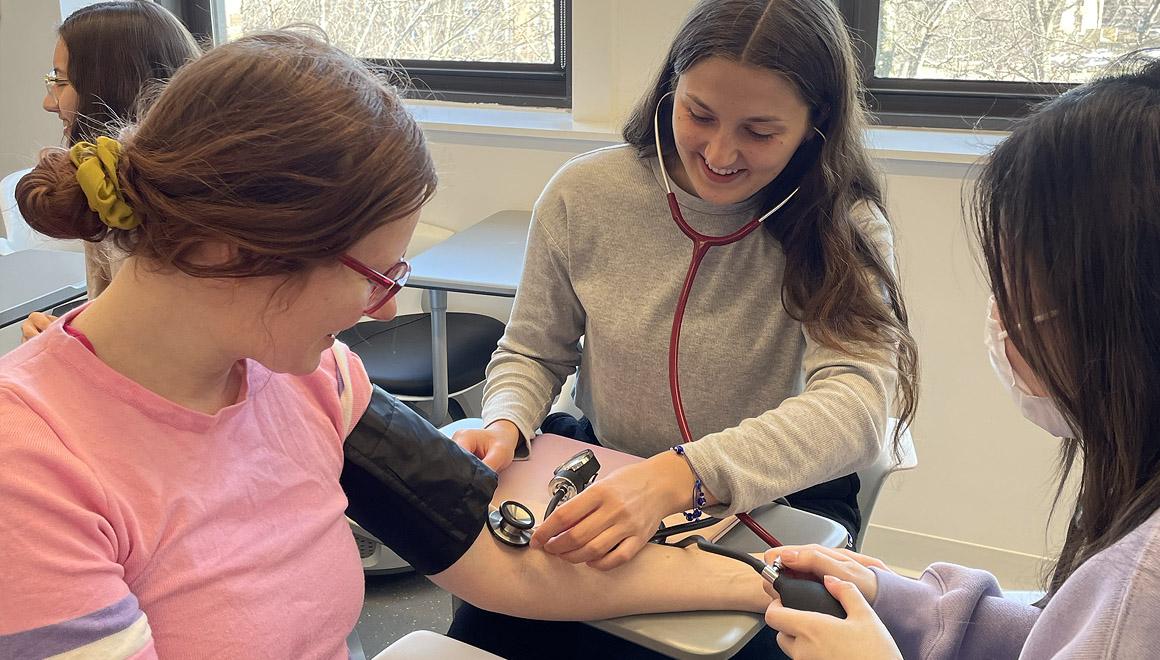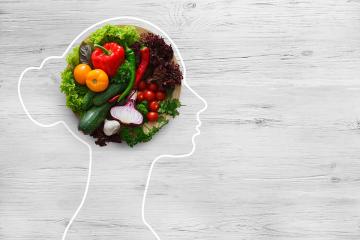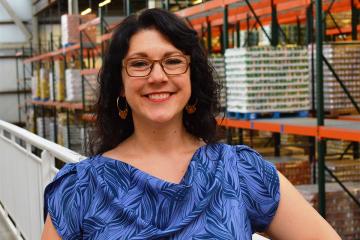Nutrition and Dietetics

Transform wellness and nutrition in your community
The Bachelor of Science in Nutrition and Dietetics degree at Simmons University prepares you to become an advocate for healthy lifestyles through a firm scientific understanding of food, the human body, and how the two interact.
The Nutrition and Dietetics degree — accredited by the Accreditation Council for Education in Nutrition and Dietetics (ACEND) — fulfills the didactic program in dietetics to become a Registered Dietitian Nutritionist (RDN). Visit “Become a Registered Dietitian Nutritionist (RDN) at Simmons” for academic guidance on earning the RDN credential.
You also can leverage this degree to earn a master's degree in five years through our Nutrition + Nutrition and Health Promotion (4+1) accelerated program.
Why earn a bachelor's degree in Nutrition and Dietetics?
Nutrition is a fundamental pillar of health in every stage of life. It is a field that integrates natural and social sciences to promote health and manage disease.
By earning your BS in Nutrition and Dietetics, you’ll be prepared to advance to the next stage of training to sit for the national credentialing Registered Dietitian Nutritionist examination.
The degree also provides graduates with an excellent foundation to enter other careers in science and health. Our graduates pursue careers not only in nutrition, but also in research, policy, sports and wellness, and science communications.
Your coursework begins with a strong foundation in core sciences, including biology, anatomy and physiology, chemistry, and biochemistry. You’ll then advance to specialized topics in dietetics, such as food science, management, community nutrition, nutrient metabolism, and medical nutrition therapy.
Through your classes and hands-on learning in community and clinical settings, you’ll develop the knowledge and confidence to work as a nutrition professional, contributing to healthcare teams and advocating for public health.
Internships and research opportunities in Boston
As a Simmons student, you'll access a wealth of resources and hands-on learning experiences throughout Boston — a worldwide leader in healthcare and medicine.
You’ll engage in research, internships, and clinical experiences, allowing you to explore interests, build skills, and develop mentor relationships with leaders in the field. You’ll work alongside practicing nutrition professionals reviewing medical records, interviewing and assessing the nutritional status of clients, and advising on healthy diets.
Program accreditation
Our BS in Nutrition and Dietetics program is accredited by the Accreditation Council for Education in Nutrition and Dietetics (ACEND), 120 South Riverside Plaza, Suite 2190, Chicago, IL, 60606 telephone: (800) 877-1600, ext. 5400.
Spotlight on Nutrition and Dietetics Students and Alums
Our Faculty
The faculty in the Nutrition Department are nationally known in their area of expertise. Each has years of practice experience in their areas of teaching. They have served in state government boards and national committees, and won national awards.
They are dedicated educators committed to the success of our students. Each student will have a faculty advisor in nutrition who will provide individualized guidance for coursework selection and career planning.















